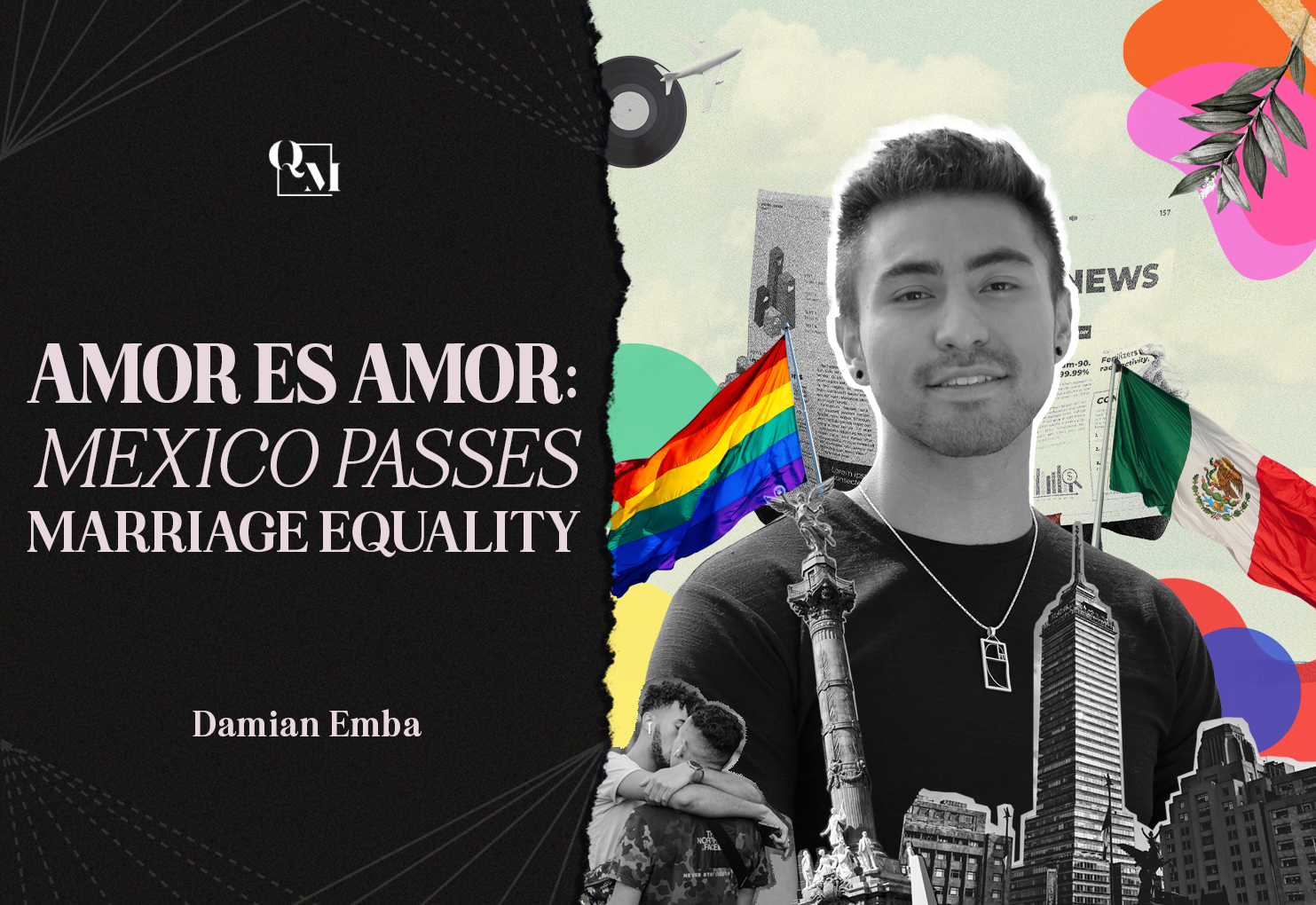Amor es Amor: Mexico Passes Marriage Equality
Currents
On October 26th, Mexico joined more than 30 countries worldwide, including seven in Latin America, by legalizing same-sex marriage nationwide. Today, gay, lesbian, and bi people can marry in every part of the country, not just in Mexico City or other more liberal states that allow same-sex marriage. Today, LGB couples no longer have to fight to have their marriages recognized in states with same-sex marriage bans. I recognize the immensity of this milestone and what it means for queer people in Mexico. After more than a decade spent living in the United States, I’ve often thought about one day returning to Mexico. I’ve inherited a house there, in fact. What always stops me is an oh-so-familiar feeling. Memories of my childhood come flooding back — of intolerance, of a culture of homophobic machismo, and of religiously-ordained bigotry. Today, for perhaps the first time in my life, Mexico feels like a place that welcomes people like me.
Steeped in a deeply Catholic culture which taught that same-sex behavior was a sin, and raised by a Jehovah’s Witness grandmother who, though loving, held many of the same attitudes toward sexual minorities, I felt like a stranger in my own land. I didn't have it as bad as others, having grown up in Mexico City, one of the more metropolitan and progressive cities in Latin America. Those from more rural parts of the country would surely have experienced worse. But while I myself was not on the receiving end of homophobia, I witnessed it all around me. I recall a childhood friend named Daniel who was cruelly bullied at school. Daniel wore a pink backpack, spoke with a lisp, and carried binders decorated with flowers. I’m not even sure if he was gay, but it was enough for the bullies, who repeatedly roughed him up and called him anti-gay slurs. To my great shame and regret, I never stood up for him. Experiences like these forced me, and many other people, into the closet. In order to feel safe and make it through the trials of adolescence in that environment, I chose to negate my attraction to men altogether and focus on my attraction to women.
Thankfully, I moved to the West Coast of the US with some relatives. Living as a teenager in one of the more progressive parts of the country, not only did I find acceptance, but also celebration of my sexuality by both queer and straight friends alike. While my peers in Mexico didn't come out until their mid-twenties, my American friends had already been out for years and were prominent members of the LGBT community. Here I became involved in music festival culture, event design, and influential queer activism circles. While the US was more socially progressive than Mexico, these subcultures were far ahead of the curve of the American public on things like bisexuality, trans-inclusion, and polyamory.
Festival camping in Mexico at 16 (left image), and Burning Man this year (right image).
This drastic change in surroundings allowed me to leave behind my childhood insecurities and self-hatred and mature into a proud, self-realized bi and polyamorous man. I can be my true, carefree self, unrestrained by repressive traditionalism, hateful homophobia, or the constraints of monogamy. I have a wonderful long-term boyfriend of over ten years, and another boyfriend as well. I’ve been interviewed by Buzzfeed and The New York Times.
October 26th will go down as an important day in Mexican history, changing life for all gay and bi Mexicans. Although this campaign has been ongoing for years, the passage of marriage equality allows LGBT families not only to be more equal, but to be more visible as well. Even for those with no plans or intention of getting married, this law is a symbol of tolerance and hope for a brighter future. Let’s hope Mexico can set an example and inspire other countries to do the same. After welcoming the vote, Arturo Zaldívar, president of the Supreme Court of Justice of Mexico tweeted, “The whole country shines with a huge rainbow. Long live the dignity and rights of all people. Love is love.”
Oscar Wilde once said “To live is the rarest thing in the world. Most people exist, that is all.” Thanks to the community I have found in America, I am alive. My hope is that now, more of my fellow LGBT Mexicans will be able to find a place to be alive without having to move away. Mexico is no longer merely the place where I was born. Today, it finally feels like my home.
Published Nov 1, 2022
Updated Nov 10, 2022




